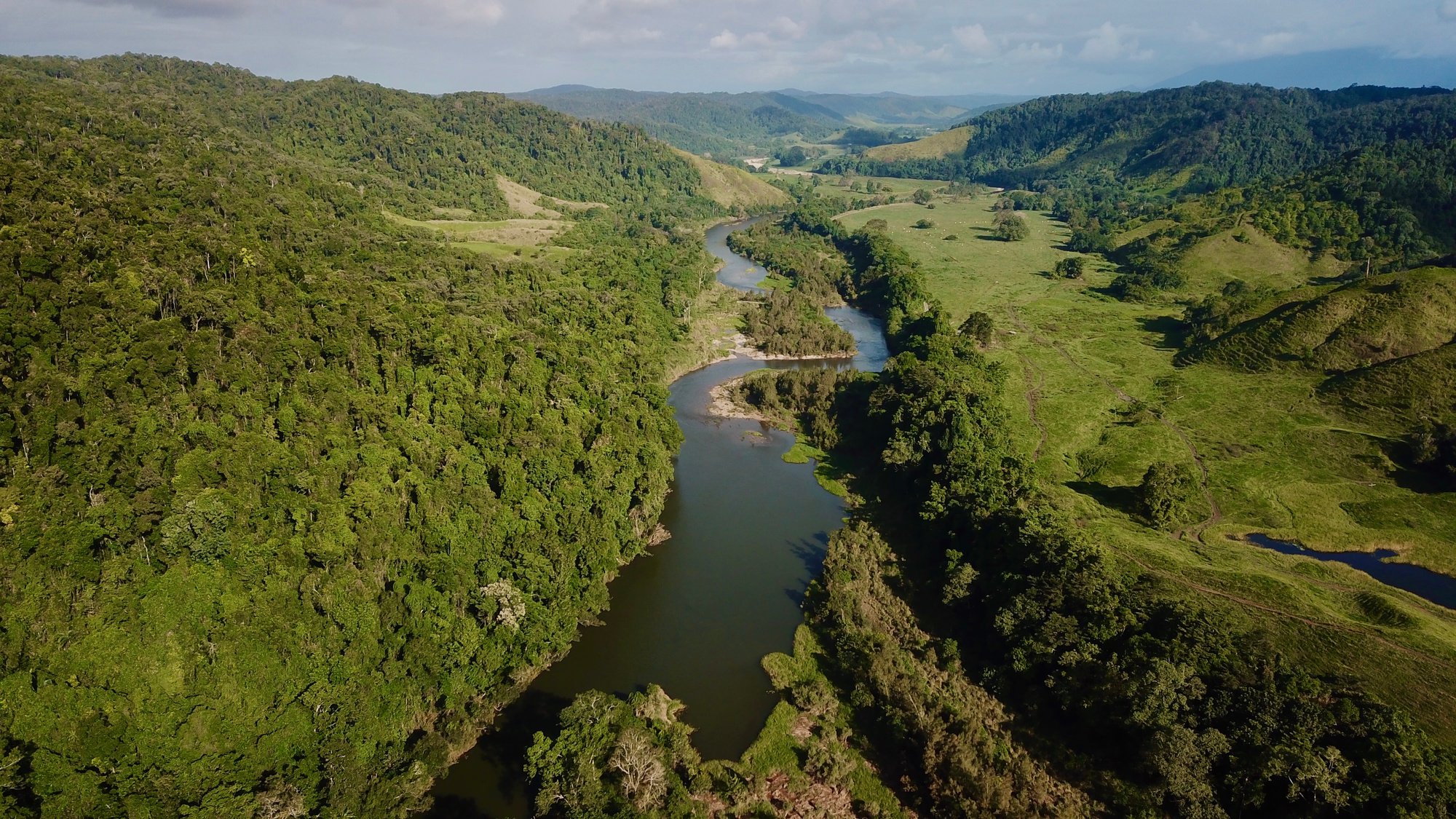
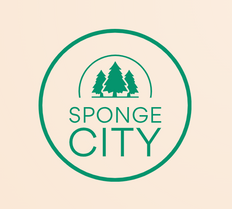
THE SOUTHEAST
ASIA SPONGE CITY INNOVATION CHALLENGE
Brief Project Description:
The Southeast Asia Sponge City Innovation Challenge is a design challenge for young people to bring new ideas and model what a resilient infrastructure model that supports the needs of the community looks like. It focuses on the growing risks that must be addressed, including climate resiliency and adaptation, accessibility for marginalized groups and overall better quality of living. It invites participants to explore the link between infrastructure, long-term sustainability and intentional living.

MEET THE TEAM
Vennessa Kuek Weng Yan
Team Lead, Project Coordinator and Strategist
Environmental Advocate and Ecology Student, Malaysia
Ms. Vennessa is an Ecology and Biodiversity student at University Malaya with a minor in Civil Engineering. She is an active volunteer for academic and community events in her community in Kuala Lumpur, with special interest and advocacy in the intersections of environmentalism, sustainable infrastructure and engineering. She was active in the education sphere in Malaysia for three years empowering B40 students through ProjectEd Malaysia, shadowing Teach For Malaysia (TFM) and targeted tuition classes to low-literacy suburban communities before pivoting to the environmental sphere. Ms. Vennessa is also currently an active volunteer, rapporteur and guide at Rimba Ilmu, and is working on a podcast that showcases the stories of people in environmentalism.

MEET THE TEAM
Sokunlanita May
Head of Capacity Building and Finance
Founder of Women in Architecture and Engineering, Cambodia
Driven by a vision of sustainable and inclusive cities, Sokunlanita, a 4th-year female scholarship architecture student, is bridging the gap between design, gender, and environmental responsibility. Currently, she is co-founding "WAE-women in Architecture and engineering community" to tackle gender disparity in STEM fields. By aiming to inspire and uplift women's voices, Nita advocates for designing with gendered perspectives, sustainable aspects and building a supportive community for women in these fields. In addition, her internship ignited her passion for sustainable landscapes, which she integrated into park projects.
She believes female designers, equipped with innovation and inclusivity, hold the key to solving climate/environmental challenges and shaping the future of Cambodian architecture.

MEET THE TEAM
Rifka
Head of Publicity and Social Advocacy
Program Manager at Feminis Thesis Community, Indonesia
Rifka Dyah Safitri, Deaf women who graduated with Bachelor Degree of Nonformal Education from Semarang State University. Her extensive background as Inclusive Specialist the Inclusive Climate Change Adaption program in 6 villages for 6.000 Disabilities and Non-Disabilities on 2022. Her project about #DeafDisasterResilience followed 100 Deaf and Hearing people in young leaders for climate by TeensGoGreen’s on 2023.
She’s a Project Manager in FeminisThemis Community. She exploring the issues in Climate Change Adaption, Eco-Ableism, Gender Equality, Disabilities, and Sexual Violence. She wants to implement Inclusive climate change action and contribute public campaign, especially those affected by the climate crisis.

MEET THE TEAM
Warat Tong-iam
Monitoring and Evaluation Officer, Webmaster
Economics Student, Thailand
Warat Tong-iam is a fourth-year Economics student at Chiang Mai University, Thailand, renowned for his commitment to community engagement and environmental advocacy. He participated in various programs and activities such as the UNICEF Young People Advisory Board, Economics Swimming Club presidency, and Volunteer
Camps in rural areas. Moreover, achievements include addressing PM2.5 pollution in Northern Thailand and winning awards for innovative projects "My Footprint," an app promoting carbon emission awareness. His passion regarding youth empowerment and sustainable development has received appreciation, showing their commitment to bringing about positive change.

MEET THE TEAM
Arcenia
Head of Participant Welfare and Support
English Literature Student, Timor Leste
Ms Arcenia is a finalist student of English Literature at Brawijaya University concentrating in Linguistics. She had experience as a volunteer and facilitator of an English Club at UmaAmerika@UNTL. She is an animator of Laudato Si’ Movement Timor-Leste with her capstone project promoting the awareness of climate change. She is a passionate environmental, language, culture and education activist. Additionally, she had experience as a speaker at AVISOC (Asean Virtual Student Opinion Competition) on the topic “Global Citizenship and Cultural Competence : Thriving in a Diverse World”, representing her country Timor-Leste. She loves music and has a lot of achievements from singing competitions.
THE CHALLENGE/ OVERARCHING ACTION PLAN
Project Team Execution Plan:
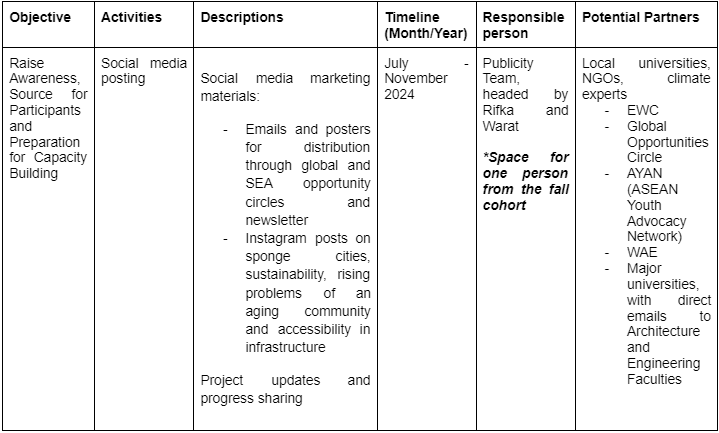
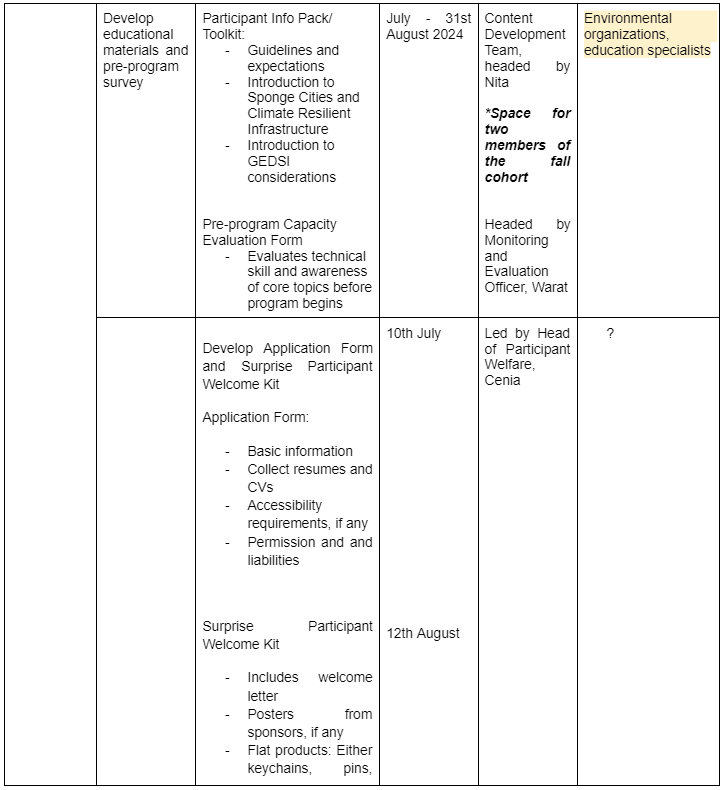
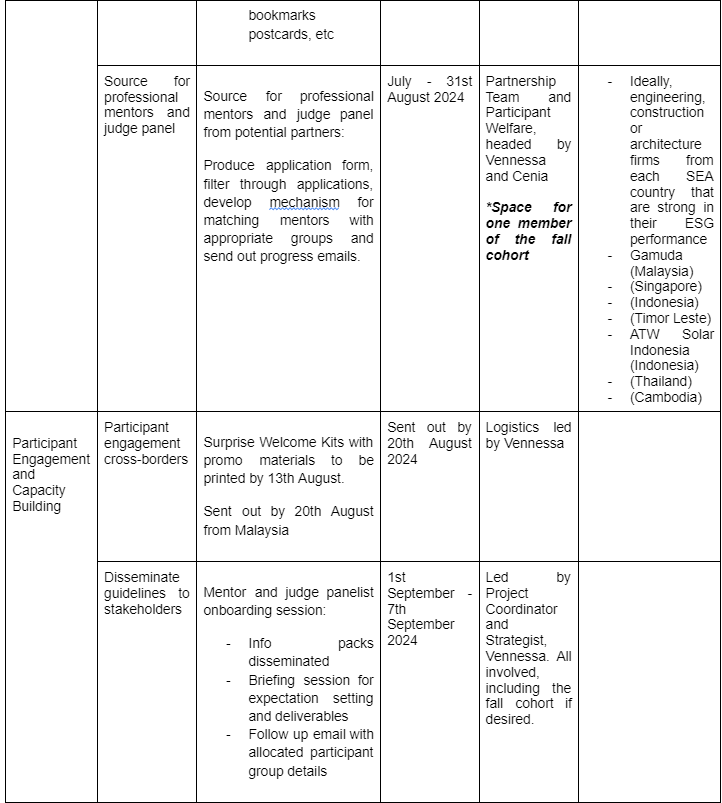
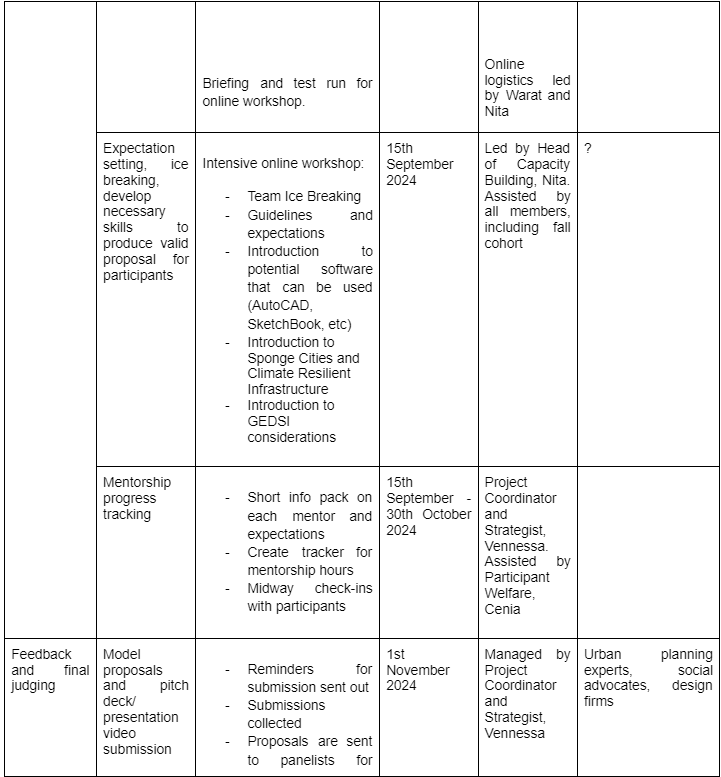

Participant Timeline:
Stage 1: Form groups of 3 to 5 people. Apply here by 15th August 2024. Application results to be announced by 1st September 2024.
Stage 2: 8 approved teams go through a technical online workshop and designated one professional mentor. Online workshop is on 15th September 2024. 4 hours of mentorship to be fulfilled between 15th September 2024 to 30th October 2024 as they work on their proposed model.
Stage 3: Model proposal and pitch deck submission on 1st November 2024.
Stage 4: Feedback and winners announced by 15th November 2024.
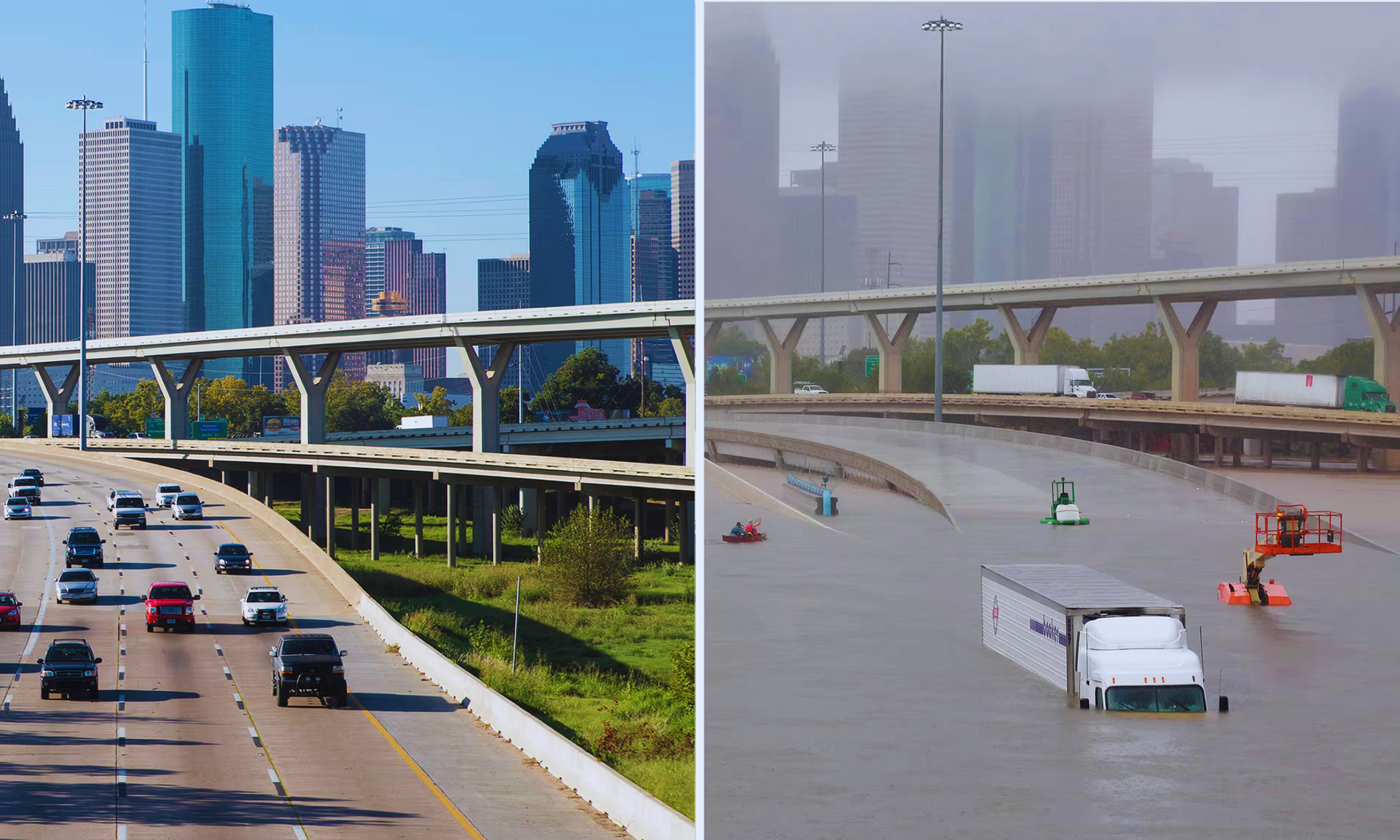
OUR WHY
Project Background and Justification:
According to the Asian Development Bank (ADB), Southeast Asia is one of the most vulnerable regions to climate change impacts, with projected losses exceeding 6% of annual GDP by 2100 if left unchecked. Urban areas, in particular, face significant risks, as rapid urbanization often leads to the proliferation of impermeable surfaces, exacerbating flood risks and compromising water quality. Vulnerable communities, including women, the elderly, the people with disabilities, and the poor, bear a disproportionate burden of these impacts, as they often reside in informal settlements with inadequate infrastructure and limited access to essential services.
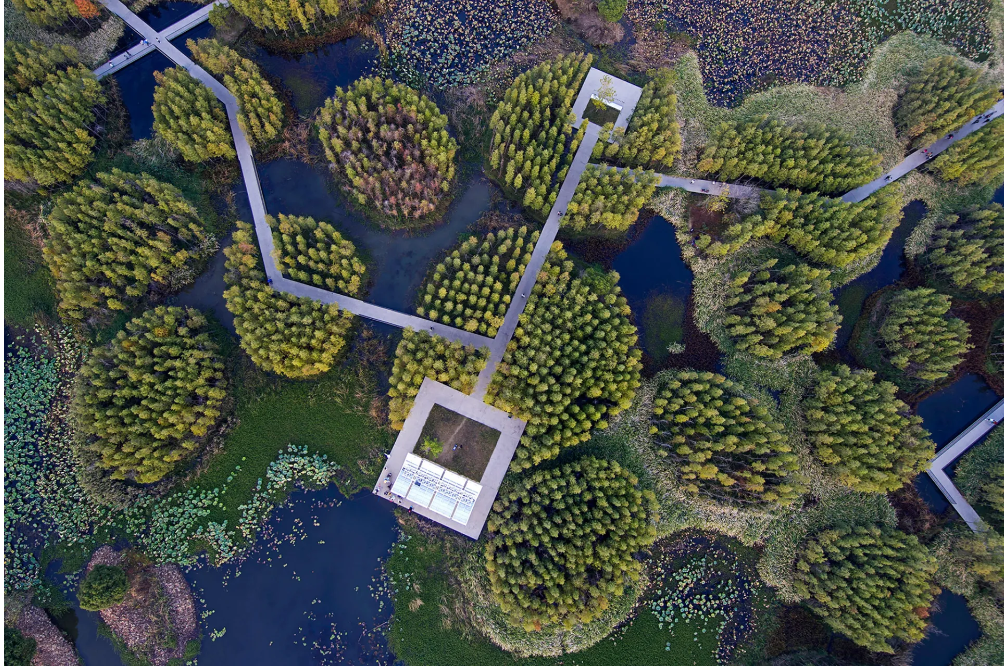
The concept of "sponge cities" emerges as a promising solution to this multifaceted challenge. Inspired by nature's resilience, sponge cities utilize green infrastructure and sustainable urban drainage systems to absorb, store, and purify rainwater, mitigating flood risks and enhancing water security. However, existing sponge city initiatives often overlook the unique needs and vulnerabilities of marginalized communities, perpetuating inequalities in climate resilience. Therefore, this design innovation challenge seeks to empower youth to reimagine sponge cities as inclusive spaces that prioritize the needs of vulnerable populations, ensuring equitable access to climate-resilient infrastructure and fostering social cohesion in the face of climate uncertainty.
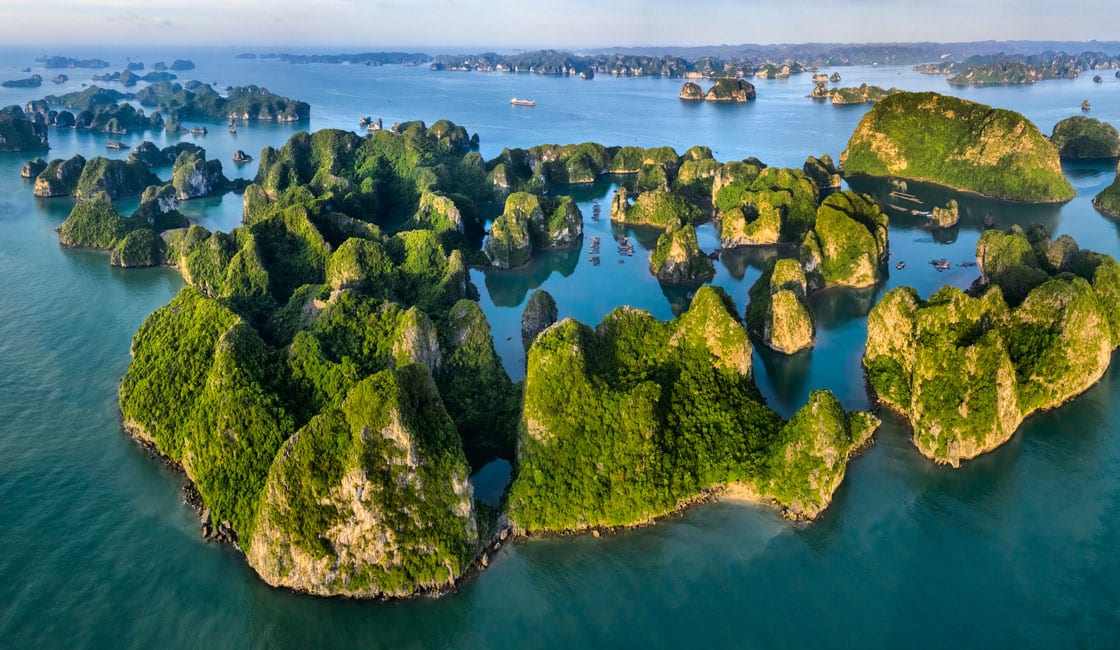
According to the United Nations, Southeast Asia is one of the regions most vulnerable to climate change impacts, including rising sea levels and increased frequency of extreme weather events.
United Nations Framework Convention on Climate Change (UNFCCC 2020). Climate Change Impacts in Southeast Asia.
The Southeast Asia Sponge City Innovation Challenge aims to address the reduced quality of life currently faced by countries along the equator due to fluctuating weather patterns and erratic rainfall caused by the changing global climate. The effects of climate change faced by dense, urban communities in these countries are exacerbated by the poor structural longevity and lack of mindful infrastructure planning. Excessive and erratic floods have caused destruction of housing, disruption of access to basic amenities (such as housing, work and school), and forced temporary displacement. This has a disproportionate impact on the quality and stability of life for women, the disabled, the elderly and the poor as they are more vulnerable to the effects of missing work, potential displacement and loss of documents and properties.
The end goal of the project is to contribute towards creating urban communities that are climate resilient and accessible to all for increased quality of life through sustainable infrastructure. We aim to plant seeds in the youth, especially those who will become the forefront of city planning and long term sustainability, such as those involved in architecture, township-planning, environmentalism and engineering, by providing a space to cultivate interest and innovation for climate resilient cities.
WHERE WE FIT
Project Goals and Objectives:
Southeast Asia is highly vulnerable to climate change, particularly Cambodia, which is situated in the Mekong River basin. Its location makes it susceptible to seasonal monsoon rains and river overflow, leading to frequent and severe flooding. Without proper adaptation and mitigation, climate change could cost Cambodia up to 9% of its GDP by 2050 and increase the poverty rate by 6 percentage points by 2040, according to WorldBank report. Among all, vulnerable communities, such as women, the elderly, people with disabilities, and the poor, are disproportionately affected as they often live in informal settlements with inadequate infrastructure and limited access to essential services.
Integrating green infrastructure (nature-based solutions) and sustainable urban drainage systems helps mitigate flood risks and enhance water security. Therefore, the Sponge City project aims to empower youth, especially the new generation of urban planners, architects, and engineers, to envision and design inclusive urban climate resilience that caters to the needs of vulnerable populations in Cambodia. The project has three main objectives. Firstly, it aims to raise awareness and build capacity by conducting 20 workshops and seminars to educate 500 youth on sponge cities, climate resilience, and the vulnerabilities of marginalized communities, leveraging local universities and NGOs within 12 months. Secondly, it seeks to engage and empower youth through one competition involving 50 participants, including public exhibitions for up to 500 people over 3 months. Lastly, to promote inclusive design, the project will develop and distribute more than 21 guidelines and toolkits with community involvement over 12 months and submit a design publication of competition outcomes to the government and other relevant stakeholders to collaborate on implementation phases.
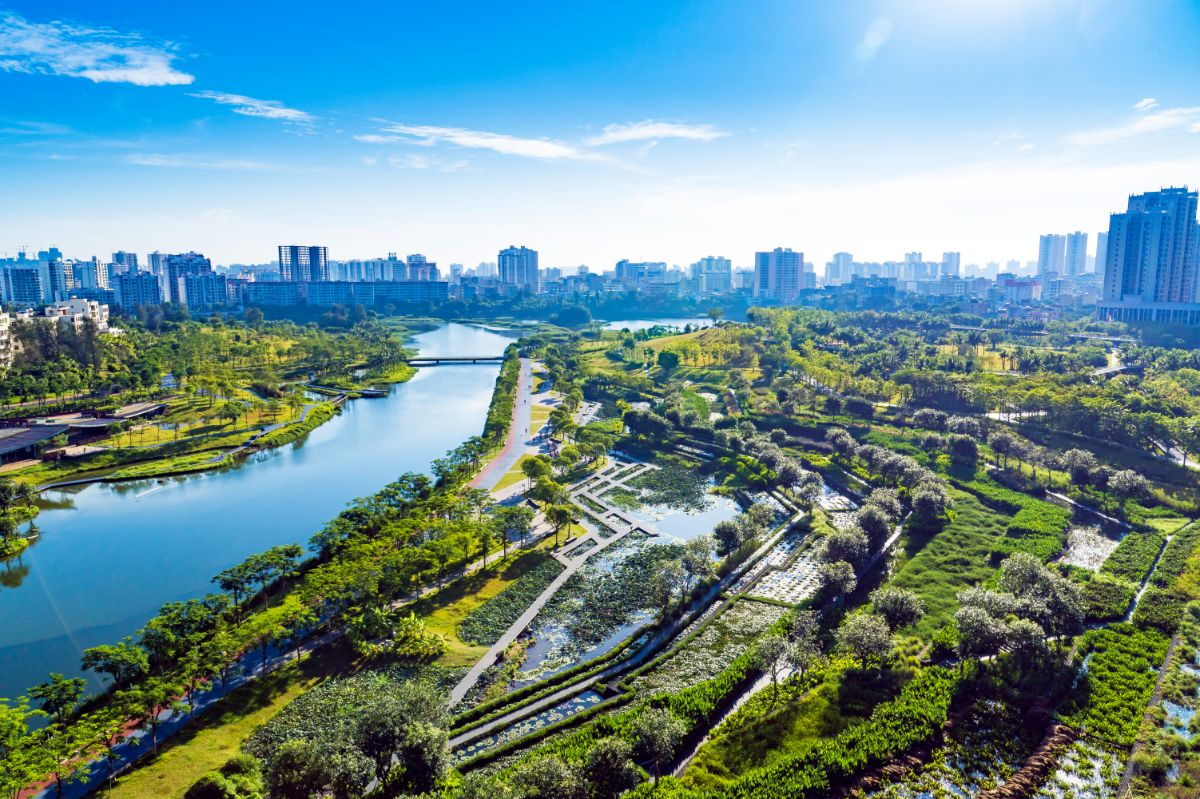
SIGNIFICANCE
QUESTIONS AND IDEAS:
- Can we reasonably partner with major companies and governments, to allow for participants’ resumes to be collected for better career progression companies?
- Workshop at Laos – What exactly is the workshop on? On how we structure the project, or the workshop that we have during the project on inclusive and climate resilient infrastructure?


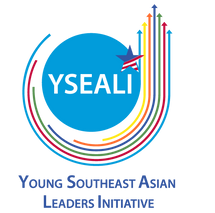

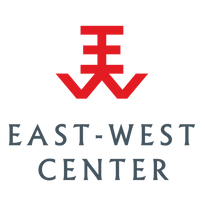
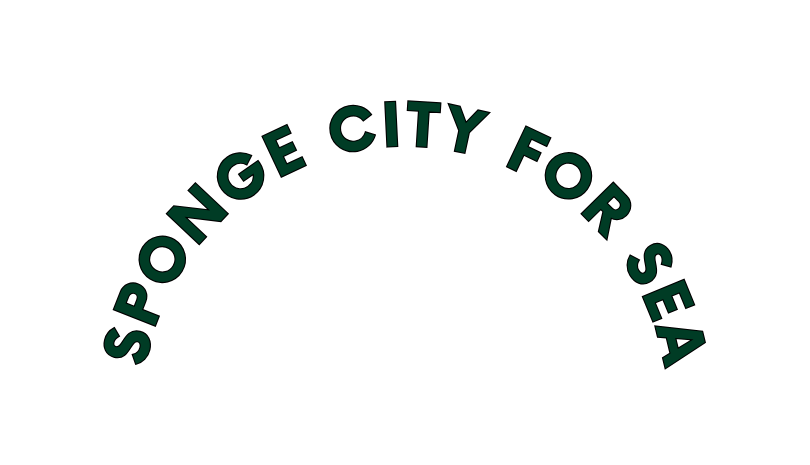
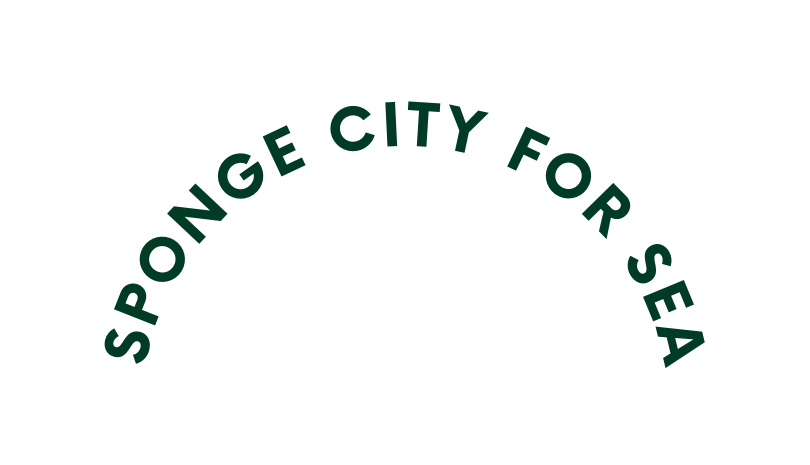


#NothingAboutUsWithoutUs
#SpongeCityForSea